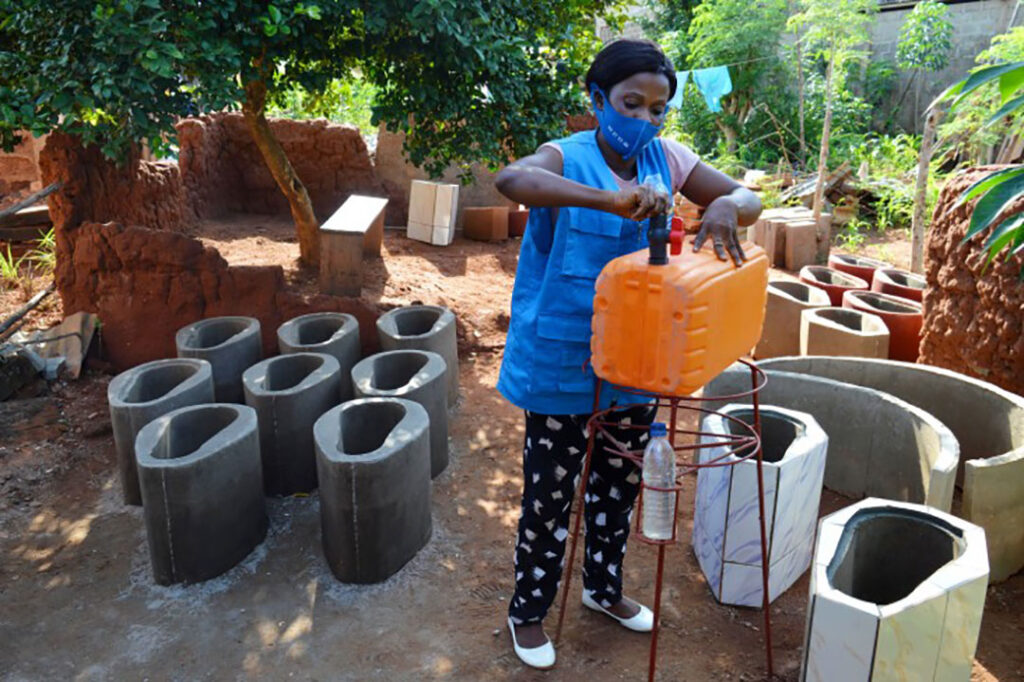ADF STAFF
Aimée Gbahoué affixed a water tap to the top of a recycled orange jug in the shade of her outdoor workshop in Benin. The jug sat on a base of iron rods that Gbahoué constructed by hand, heating the metal over glowing embers and bending it with tools.
After a few twists of Gbahoué’s wrist, the contraption was a functioning hand-washing station for use in homes and local businesses.
Gbahoué is one of 40 entrepreneurs in Benin supported by a U.S. government program that helps locals produce, promote and sell products to limit the spread of COVID-19. Gbahoué, of Aplahoué, also makes toilets and latrine parts that she installs for customers.
The program helps entrepreneurs demonstrate their products and educate the public about healthy hygiene practices. Even before the pandemic, Benin had one of the world’s lowest rates of access to sanitation — only 11% of Beninese homes have a facility for hand hygiene, according to the World Health Organization.
“What I want to do is to raise awareness [of healthy practices] and take the opportunity to talk about hygiene and sanitation products and hand-washing,” Gbahoué said.
The free-standing hand-washing stations produced by Gbahoué and others are large, sturdy and operated by a foot pedal, so people can wash without touching the tap.
“When COVID-19 arrived, I took the initiative to produce hand-washing stations that I showcased at my house,” said Igor Baimey, an entrepreneur in Akpro-Missérété. “Now I easily sell at least 15 hand-washing stations a week.”
Through the entrepreneur program, the U.S. government donated 250 hand-washing stations to benefit 72,000 children at 120 primary schools. The entrepreneurs also will help Benin’s government install 450 hand-washing stations at markets, community centers and hospitals.
The U.S. earmarked $4.5 million in May to help Benin manage the crisis. The money was used to educate people in rural areas about the virus, strengthen surveillance and improve response efforts to quickly identify cases.
“This is a partnership, a partnership between governments and between peoples, because everyone must work together to end this pandemic,” U.S. Ambassador to Benin Patricia Mahoney said.
In July, the U.S. delivered $60,000 worth of equipment and supplies to help Benin establish two diagnostic laboratories in Kandi and Lokossa to increase health screenings and control COVID-19 infections.
In September, the U.S. distributed $75,000 in personal protective equipment to help health care workers at Benin’s Army Training Hospital in Cotonou battle COVID-19. The donation included hand-washing devices, hand sanitizer, latex gloves, disposable hooded jumpsuits and sterile gowns.
Benin had reported 43 COVID-19 deaths as of November 15, according to the Africa Centres for Disease Control and Prevention.

